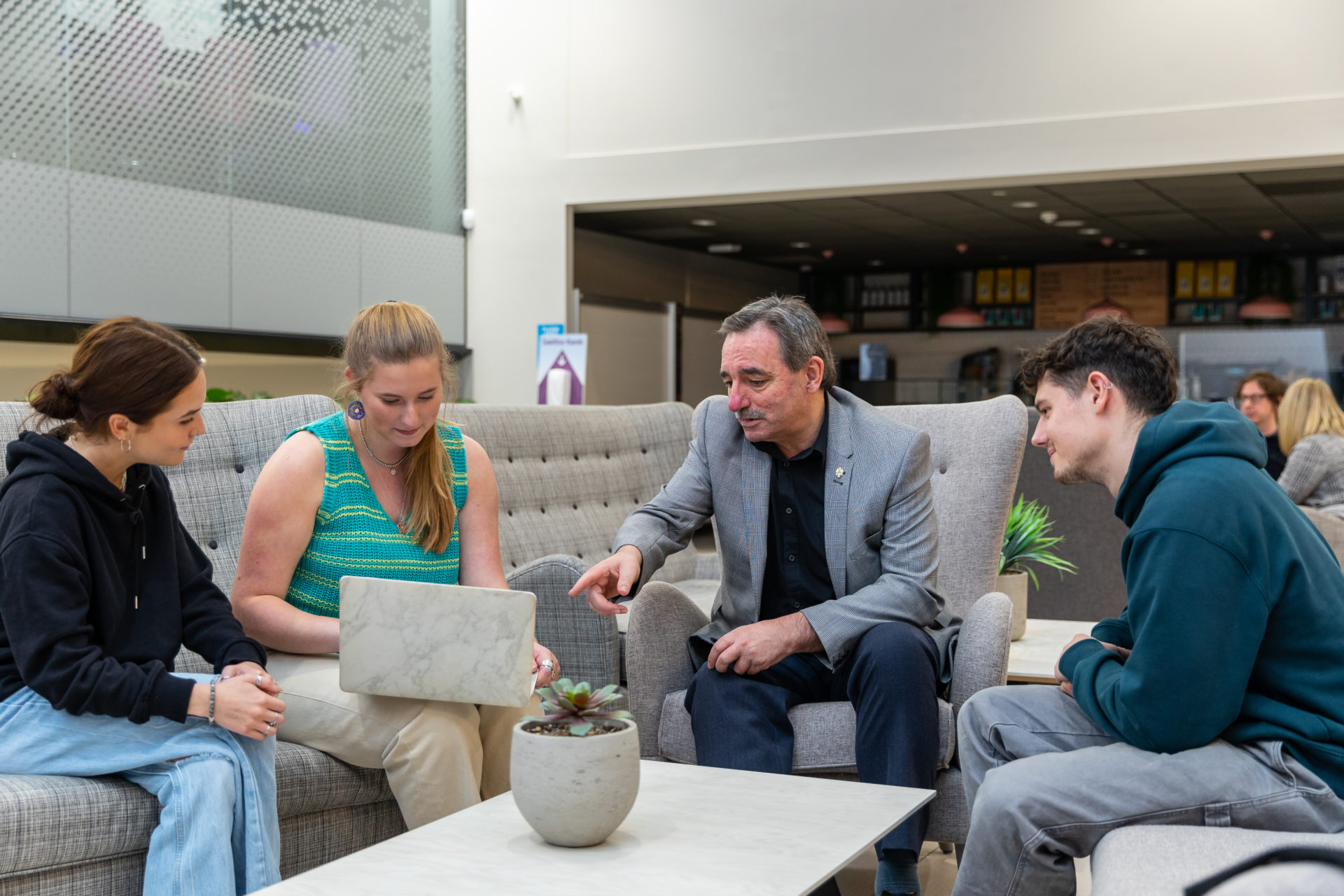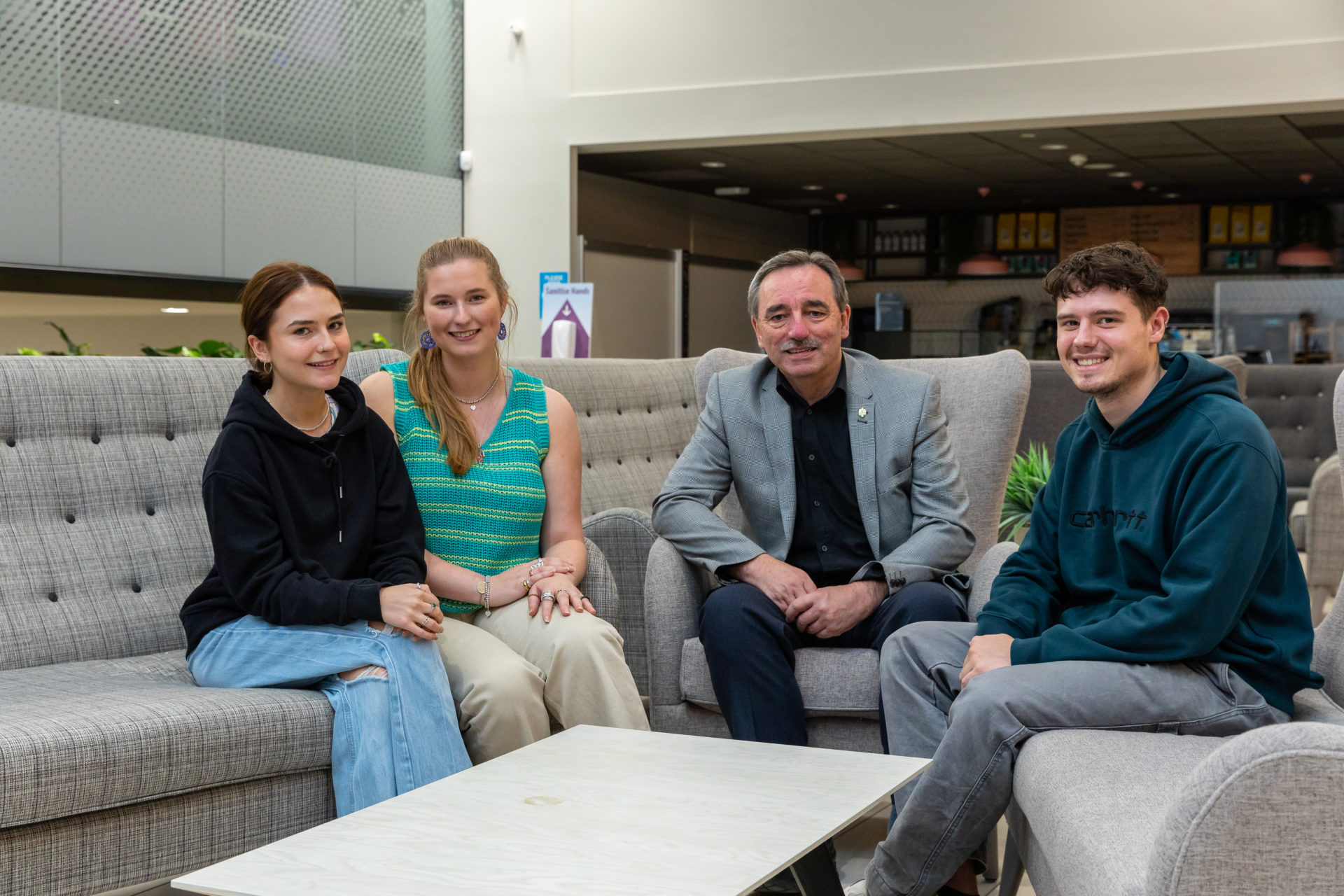Enterprise students work with community-focused non-profit Upper Calder Valley Renaissance

Students working with community-focussed enterprise Upper Calder Valley Renaissance (UCVR) successfully suggested a significant change to their project brief, enhancing both their consultancy experience and UCVR’s social development opportunities.
Involving non-profit projects in Enterprise Consultancy
‘UCVR is a strategic organisation for social purpose,’ explains Chair of UCVR Stephen Curry. ‘Nothing we do is for personal profit. Instead, we use government funds and our own assets to develop and grow our sports and outdoors facility, promoting the wellbeing of people in our local community.’
Stephen first heard of the Enterprise Consultancy module as a student at the University of Leeds himself. ‘I did a later-in-life professional MBA,’ smiles Stephen. ‘In my time there I asked about social enterprise opportunities, which is how I became involved in enterprise consultancy. I’ve been working with students ever since.’
A sustainable project with a community-focussed appeal
Stephen pitched a sustainability-based brief, and UCVR proved attractive to students looking to complement their existing subject knowledge with practical business experience. ‘The UCVR brief appealed to me as I liked the idea of working with a non-profit organisation and looking into the viability of eco-conscious schemes’, explains third year Environmental and Business BA undergraduate Lorna Lewsley.
Fellow student Mia Gale agrees: ‘My degree was sustainability based, so I chose the UCVR project to apply my understanding to real life situations. The modern world is shifting towards community-based initiatives and UCVR’s social and environmental motivations really mattered to me.’

Enterprise students meet with Stephen Curry, UCVR Chair.
Adapting to a changing project scope
Stephen initially asked the students to assess whether installing electric vehicle charging points would attract more people to the UCVR café and provide a good income stream. ‘It was a simple concept, but the students quickly realised there was very little demand for electric cars in the north,’ Stephen explains. ‘We agreed to shift the project’s emphasis onto how UCVR might create more sports and leisure opportunities. Our centre backs onto a wonderful canal, so I wanted to better understand how to use the resource we had and develop the idea for on-site water sports.’
‘Once it became clear we needed to refocus our project, we approached Stephen to discuss more viable options - giving our opinion on an alternative long-term strategy based on our research and statistics,’ explains Lorna. ‘He liked our presentation and research methods, and gave his approval to go ahead with our new ideas.’
Developing, using and applying practical skills
The students’ revised idea was to improve disability access to the canal. ‘They’d all joined the module from an environment and business studies background so this focus area tapped into their skills,’ says Stephen. ‘The students wanted to carry out marketing surveys as part of their research, so I mentored them to do this properly. Together, we’d review data so they could identify who best to contact. Then, the students went away and spoke to relevant schools and disability charities. It was quite hands-on work.’
‘The practical work gave me such a realistic insight into the professional environment, understanding how to evolve a project brief and gain client support,’ Mia explains. Lorna also praises the practical nature of the module: ‘My other modules were all based on hypothetical scenarios, but Enterprise Consultancy gave me chance to work as part of a team within a real life organisation.’
Praise for student tenacity and module structure
‘CEES brings together students from different disciplines around campus who all show entrepreneurial thinking,’ Stephen says. ‘This was the fifth student group I’d worked with as part of the Enterprise Consultancy module, so I really understand the pressure both sides face to deliver the project aims. It was quite the challenge to change the project remit, and they excelled.’
As well as praising Stephen and his team at UCVR for their support, Lorna also credits the way the on-campus learning complemented the practical work for the module’s success. ‘I’d like to thank Dr Richard Tunstall for his lectures,’ she says. ‘He was so enthusiastic and engaging, spending time with everyone in the group to talk to us one-on-one so we really learnt the tools we needed to apply to our real-life project work.’
Using module knowledge for career opportunities
Since completing the Enterprise Consultancy module, Lorna has applied for a consultancy position with Delta EE. ‘The UCVR project helped develop my interest in consultancy work and allowed me to think of career options I’d not previously considered,’ she explains.
‘I would strongly encourage students to enrol on this module,’ Mia adds. ‘Not only does it provide excellent experience for interviews and applications, it also connects you with a professional network to support future opportunities. In fact, I’ve already used the personal analysis tools I learnt in the project’s self-reflective assessments in professional interviews and applications, as well as in other modules across the university.’
Encouraging social organisations to take part in student enterprise
Stephen strongly recommends other organisations get involved with the Enterprise Consultancy module. ‘Of course it’s free consultancy, which is a big win for social enterprises like ours,’ he smiles. ‘Yet it’s more than that. I get satisfaction from passing on knowledge and learnings to students - and importantly I learn from them too.’
‘The students on this project were dynamic, enthusiastic and driven,’ Stephen concludes. ‘We’re already applying some of their findings to our work securing further funding to take our social enterprise to the next – vital – stage of development.’
